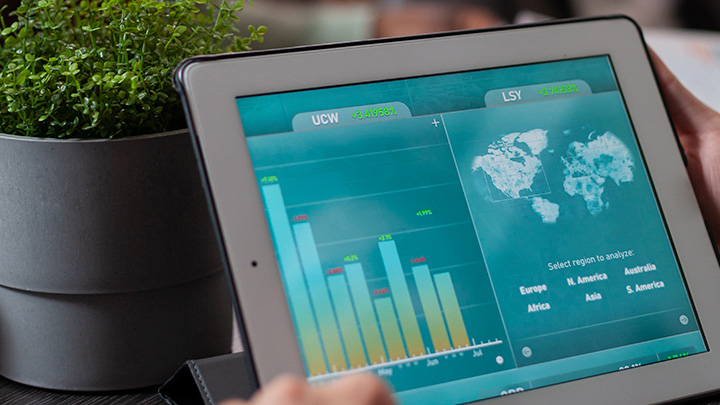
Data can be either your greatest ally or a heavy burden that holds you back. For nonprofits, the stakes are even higher.
Whether it’s donor information, volunteer or student data, or internal records, effectively managing this data is crucial for your day-to-day operations. And automation is the tool that can transform your data into the most powerful asset of your organization.
In this article, we’ll define the key reasons why nonprofits should use automation and highlight four ways data automation can enhance the efficiency and impact of your mission.
Do you really need automation?
Before answering this question, take a closer look at the operations and activities your nonprofit manages daily.
Here are five indicators that suggest automation might be worth considering:
If any of these situations sound familiar, then automation is something you may benefit from.
Data automation is a set of tools and processes used to manage data with the primary goal of streamlining its usage and eliminating human intervention.
Examples of data automation processes are:
Data automation helps companies minimize manual work, reduce errors, and focus on more value-added tasks, ultimately improving decision-making processes.
There are plenty of tools and solutions that are used to automate nonprofit data management processes.
CRM systems like Salesforce Nonprofit Cloud or Microsoft Dynamics 365 for nonprofits help companies in automating donor and volunteer data management, audience segmentation and more personalized communications, as well as automated reporting and analytics, which provide insights into engagement and fundraising efforts.
Tools such as Zapier and MuleSoft help integrate data from various sources and automatically update them across different platforms. This builds a seamless flow of data between different systems, such as CRM, email marketing, and financial management software.
RPA technologies, like UiPath or Blue Prism, are used to automate routine tasks such as data entry, file management, and report generation. RPA bots can handle repetitive tasks with little to no human intervention, reducing the risk of human error and freeing up staff for more strategic activities.
Platforms like Tableau, Power BI, or Google Analytics automate the collection and analysis of data from multiple sources, providing nonprofits with real-time insights into their operations, fundraising campaigns, and program outcomes, as well as reporting accompanied with visual graphics and charts. These tools also offer predictive analytics capabilities, enabling organizations to optimize their strategies.
Nonprofit Hub and EveryAction conducted research where they described the state of nonprofit data management in “the good, the bad, and the ugly.” “The good” refers to the fact that 90% of nonprofits reported they are collecting data. “The bad” highlights that around 50% of workers do not realize how their organization collects data. “The ugly” reveals that only 5% of these nonprofits use data in every decision they make.
While these numbers may sound gloomy, they highlight the significant potential that automation presents for nonprofits. Below are some key benefits of data automation for nonprofits.
With automation platforms, you can personalize your campaigns and send your donors, volunteers, or students relevant information and event invites that resonate with them.
Data automation helps minimize potentially ‘spammy’ content and increases engagement rates. By analyzing users’ past behavior and preferences, you can address your database by name and automatically send content that matters to them.
For example, if someone has donated to an animal welfare initiative before, they are more likely to do so again, allowing you to customize your outreach accordingly.
Your automation platform can handle the heavy burden for you by tracking key metrics like conversion rates and calculating your marketing ROI. This will set a clear view of how well your campaigns are performing, with the flexibility to adjust the formulas to fit your specific goals.
Email campaign management systems can help you increase the engagement rate of your emails, keeping your audience informed about the difference they are making.
These platforms streamline the process of sharing updates on challenges, progress, and the impact of their contributions.
Additionally, you can use these systems for post-campaign communications, such as sending thank-you emails and regular statistics to remind supporters how vital their help is to your mission.
Data automation speeds up the reporting process by automatically collecting, processing, and analyzing data from various sources.
Automation systems with reporting tools can generate detailed reports that highlight key performance indicators, financial health, and program impact. These systems offer customization options to ensure reports meet the needs of different stakeholders, providing a transparent view of the organization’s activities, which can increase trust and credibility.
In this article, we’ve outlined the key reasons why nonprofits should embrace automation, explained what data automation is, and highlighted four ways it can enhance the efficiency and impact of your mission.
Digital transformation and data automation for nonprofits simplify daily operations, allowing your team to focus on initiatives and value-added tasks that truly make a difference. Whether it’s managing email campaigns or generating advanced reports, investing in an automation platform or building a custom solution from scratch can significantly streamline your nonprofit’s work.
At Kanda, we believe that nonprofits should be pioneers of digital transformation. With a team of seasoned tech and business experts, and decades of experience in building complex solutions for a wide range of clients, Kanda is here to help you expand your organization’s goals beyond operational challenges.
Connect with our professionals today to discover how automation can empower your nonprofit to achieve your mission more efficiently.



